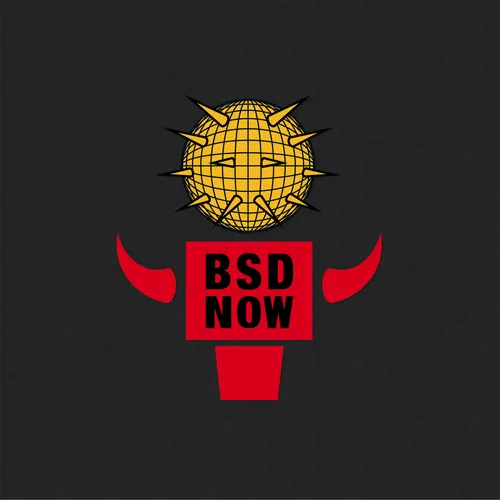379: bhyve my guest
- Author
- JT Pennington
- Published
- Thu 03 Dec 2020
- Episode Link
- https://www.bsdnow.tv/379
Adventures in Freebernetes, tracing kernel functions, The better way of building FreeBSD networks, New beginnings: CDBUG virtual meetings, LibreSSL update in DragonFly, Signal-cli with scli on FreeBSD, and more.
NOTES
This episode of BSDNow is brought to you by Tarsnap
Headlines
Adventures in Freebernetes: bhyve My Guest
Part 2 of experiments in FreeBSD and Kubernetes: Creating your first guest
Tracing Kernel Functions: FBT stack() and arg
In my previous post I described how FBT intercepts function calls and vectors them into the DTrace framework. That laid the foundation for what I want to discuss in this post: the implementation of the stack() action and built-in arg variables. These features rely on the precise layout of the stack, the details of which I touched on previously. In this post I hope to illuminate those details a bit more with the help of some visuals, and then guide you through the implementation of these two DTrace features as they relate to the FBT provider.
News Roundup
Dummynet: The Better Way of Building FreeBSD Networks
Dummynet is the FreeBSD traffic shaper, packet scheduler, and network emulator. Dummynet allows you to emulate a whole set of network environments in a straight-forward way. It has the ability to model delay, packet loss, and can act as a traffic shaper and policer. Dummynet is roughly equivalent to netem in Linux, but we have found that dummynet is easier to integrate and provides much more consistent results.
New beginnings: CDBUG virtual meetings
I had overwhelmingly positive responses from the broader *BSD community about restarting CDBUG meetings as virtual, at least for now. Hopefully this works well and even when we're back to in-person meetings we can still find a way to bring in virtual attendees.
LibreSSL update in DragonFly
DragonFly has a new version of libressl, noting cause it has a newer TLS1.3 implementation – something that may be necessary for you.
Signal-cli with scli on FreeBSD
So couple of days ago I migrated from macOS on Macbook Pro to FreeBSD on ThinkPad T480s.
Beastie Bits
Tarsnap
- This weeks episode of BSDNow was sponsored by our friends at Tarsnap, the only secure online backup you can trust your data to. Even paranoids need backups.
Feedback/Questions
- Send questions, comments, show ideas/topics, or stories you want mentioned on the show to [email protected]
***
